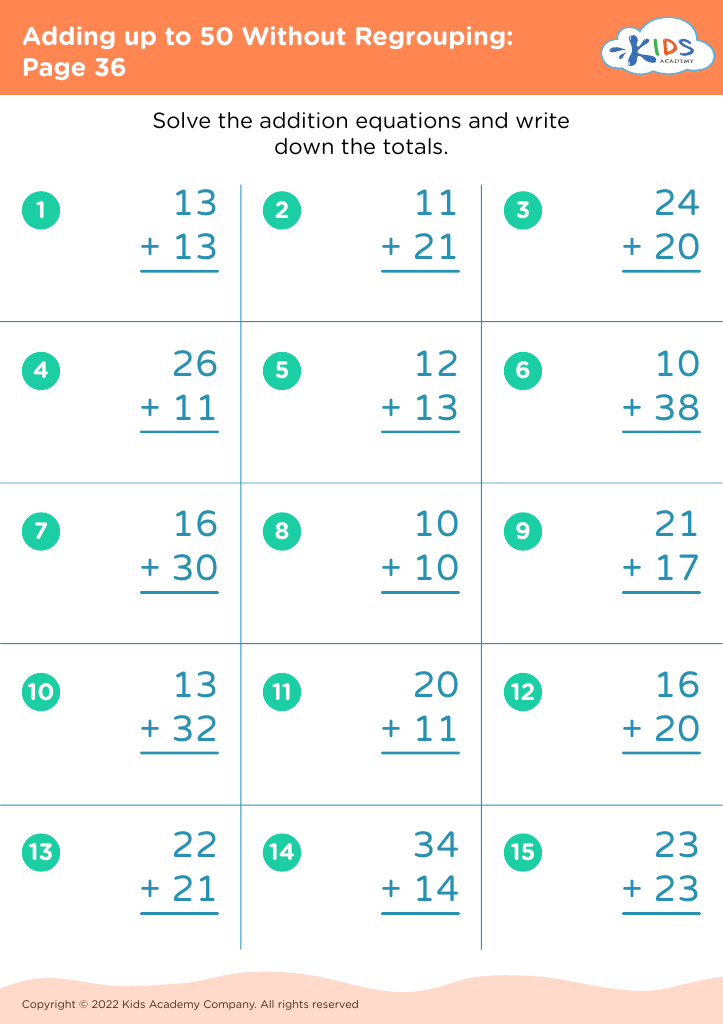Understand time Worksheets for Kids
1 filtered results
-
From - To
Question/Answer
What does the Understand time skill mean when it comes to Grade 2 Adding up to 50 Without Regrouping learning?
The "Understand time" skill in the context of Grade 2 Adding up to 50 Without Regrouping refers to the ability of students to comprehend and apply the concept of time in mathematical problems and real-life situations. This involves recognizing time-related terms and being able to add numbers up to 50 without carrying over (regrouping) in time-based scenarios.
How to test a Grade 2 student’s Understand time skills?
To test a Grade 2 student's understanding of time, you can ask them to: 1. Identify the time shown on analog and digital clocks. 2. Draw the hands on a clock to show a given time. 3. Understand and use terms like o'clock, half past, quarter to, and quarter past. 4. Solve simple word problems involving time durations (e. g.
How does the mastery of the Understand time skill affect a student's performance at an early age?
Mastery of the Understand Time skill at an early age significantly enhances a student's performance by improving their ability to manage time, meet deadlines, and develop a sense of punctuality. It fosters better organization and planning skills, leading to more effective learning and task completion. Early grasp of time concepts also supports mathematical understanding and the development of daily routines.














